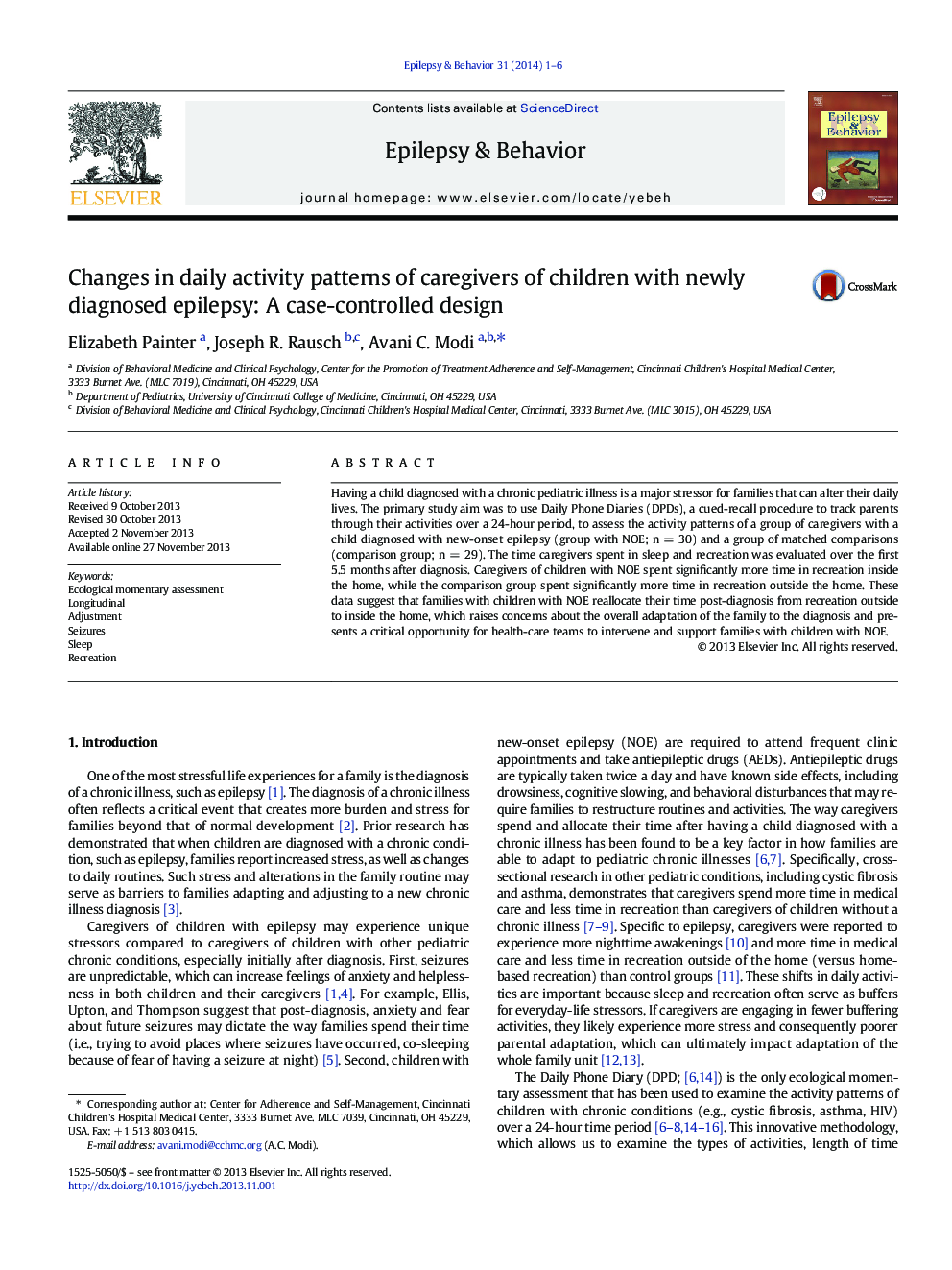| Article ID | Journal | Published Year | Pages | File Type |
|---|---|---|---|---|
| 6012502 | Epilepsy & Behavior | 2014 | 6 Pages |
Abstract
Having a child diagnosed with a chronic pediatric illness is a major stressor for families that can alter their daily lives. The primary study aim was to use Daily Phone Diaries (DPDs), a cued-recall procedure to track parents through their activities over a 24-hour period, to assess the activity patterns of a group of caregivers with a child diagnosed with new-onset epilepsy (group with NOE; n = 30) and a group of matched comparisons (comparison group; n = 29). The time caregivers spent in sleep and recreation was evaluated over the first 5.5 months after diagnosis. Caregivers of children with NOE spent significantly more time in recreation inside the home, while the comparison group spent significantly more time in recreation outside the home. These data suggest that families with children with NOE reallocate their time post-diagnosis from recreation outside to inside the home, which raises concerns about the overall adaptation of the family to the diagnosis and presents a critical opportunity for health-care teams to intervene and support families with children with NOE.
Related Topics
Life Sciences
Neuroscience
Behavioral Neuroscience
Authors
Elizabeth Painter, Joseph R. Rausch, Avani C. Modi,
